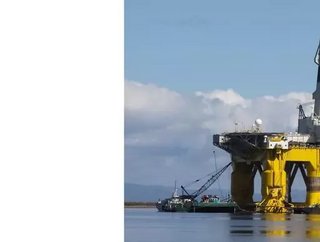Trump plans to loosen Arctic petroleum regulations

The Trump administration has proposed loosening safety regulations for the oil industry in the Arctic Ocean off Alaska to ease the way for petroleum extraction in the region - an effort that President-Elect Joe Biden will likely throw out once in office.
The proposal looks to revise a suite of Obama-era rules crafted to improve safety in the extreme conditions of the Arctic, after a Shell drilling rig ran aground in the Gulf of Alaska in 2012. The company later abandoned oil exploration in the area, and there are currently no active drilling operations there.
Much of the US portion of the Arctic Ocean – the Chukchi Sea and part of the Beaufort Sea – is off-limits to new oil and gas leasing under a 2019 judge’s order that overturned the outgoing president’s efforts to open vast areas of the Arctic and Atlantic Oceans to oil leasing.
Biden has vowed to ban all new drilling in federal lands and waters once he takes office.
The US Department of Interior, which oversees the government’s offshore oil and gas program, says in a statement that the revisions would remove unnecessary, burdensome provisions in the 2016 rules.
The proposal would specifically eliminate a requirement that oil operators submit a detailed operations plan before filing an exploration request, according to a fact sheet published by the Bureau of Safety and Environmental Enforcement.
The Trump administration is also seeking to roll back a rule that requires operators to demonstrate they can quickly deploy containment equipment in case of oil spills, such as capping stacks or domes.
The proposed changes have been welcomed by the top oil industry trade group, which claims that developing Arctic resources is critical to US national security.
“We look forward to reviewing a proposal that seeks to correct short-sighted restrictions to research and exploration of the world’s largest remaining conventional, undiscovered oil and natural gas resources,” American Petroleum Institute Senior Vice President of Policy, Economics and Regulatory Affairs Frank Macchiarola says in a statement.
However, Alaska Wilderness League, an environmental group, says that the rollback increases the risk of an oil spill in the region, which would endanger wildlife and coastal communities in the fragile ecosystem.
“There simply are no effective means to respond to or clean up an oil spill in the Arctic’s harsh and remote conditions,” Leah Donahey, legislative director for AWL, says in a statement.
Before the proposal can be finalised, it will have to undergo a 60-day public comment period that will begin once the rules are published in the Federal Register. A spokesperson for the BSEE could not confirm on when that would happen.
Joe Biden is scheduled to be inaugurated on January 20, 2021.






